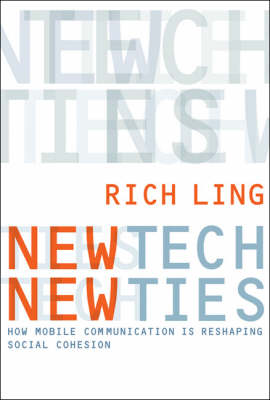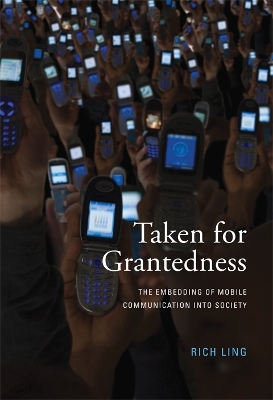The MIT Press
2 total works
Drawing on the work of Emile Durkheim, Erving Goffman, and Randall Collins, Ling shows that ritual interaction is a catalyst for the development of social bonding. From this perspective, he examines how mobile communication affects face-to-face ritual situations and how ritual is used in interaction mediated by mobile communication. He looks at the evidence, including interviews and observations from around the world, that documents the effect of mobile communication on social bonding and also examines some of the other possibly problematic issues raised by tighter social cohesion in small groups.Rich Ling is Senior Researcher at the Norwegian telecommunications company Telenor and Adjunct Research Scientist at the University of Michigan. He is the author of The Mobile Connection: The Cell Phone's Impact on Society.
An examination of how the mobile phone has become part of the fabric of society-as did such earlier technologies as the clock and the car.
Why do we feel insulted or exasperated when our friends and family don't answer their mobile phones? If the Internet has allowed us to broaden our social world into a virtual friend-net, the mobile phone is an instrument of a more intimate social sphere. The mobile phone provides a taken-for-granted link to the people to whom we are closest; when we are without it, social and domestic disarray may result. In just a few years, the mobile phone has become central to the functioning of society. In this book, Rich Ling explores the process by which the mobile phone has become embedded in society, comparing it to earlier technologies that changed the character of our social interaction and, along the way, became taken for granted.
Ling, drawing on research, interviews, and quantitative material, shows how the mobile phone (and the clock and the automobile before it) can be regarded as a social mediation technology, with a critical mass of users, a supporting ideology, changes in the social ecology, and a web of mutual expectations regarding use. By examining the similarities and synergies among these three technologies, Ling sheds a more general light on how technical systems become embedded in society and how they support social interaction within the closest sphere of friends and family.

